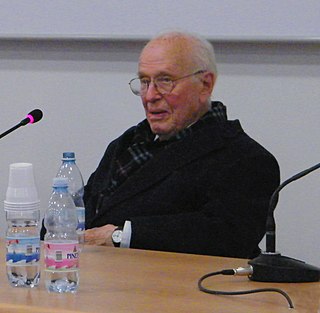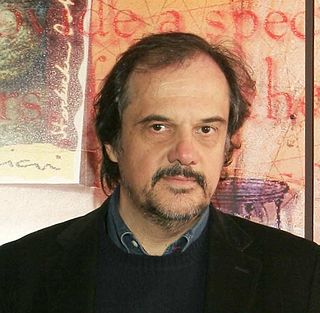Цитата Яна Хакинга
Филип Китчер считает, что математика удивительно похожа на эмпирическую науку. Немногие математики согласились бы; философы тоже, начиная с Сократа, придерживались противоположного мнения.
Связанные цитаты
Сократ: Так что даже наши прогулки здесь опасны. Но вы, кажется, избежали самой опасной вещи из всех. Берта: Что это? Сократ: Философия. Берта: О, у нас здесь есть философы. Сократ: Где они? Берта: На факультете философии. Сократ: Философия — это не факультет. Берта: Ну, у нас есть философы. Сократ: Они опасны? Берта: Конечно нет. Сократ. Тогда они не настоящие философы.
Сократ лихо утверждал, что никто никогда не проигрывает, делая правильные вещи. Стивен Пост и его сотрудники заявляют чуть менее смело, что, по крайней мере, щедрые, вероятно, останутся здоровыми, — и, улучшая Сократа, они подкрепляют это утверждение тщательной эмпирической наукой, впечатляющей своей всеобъемлющей детализацией. Здесь этика и религия объединяются с наукой и призывают нас быть более заботливыми и здоровыми. Основополагающая работа со срочным сообщением.
У математики два лица: это строгая наука Евклида, но это и нечто другое. Математика, представленная в евклидовом ключе, предстает как систематическая, дедуктивная наука; но математика в процессе становления представляется экспериментальной, индуктивной наукой. Оба аспекта так же стары, как и сама математика.
Сократ: Вы заметили в нашем путешествии, как часто граждане этой новой земли напоминают друг другу, что это свободная страна? Платон: Да, и мне кажется странным, что они это делают. Сократ: Как так, Платон? Платон: Это все равно, что напоминать пекарю, что он пекарь, или скульптору, что он скульптор. Сократ: Ты хочешь сказать, что если кто-то убежден об их ремесле им не нужно напоминать. Платон: Это верно. Сократ: Я согласен. Если бы эти граждане были убеждены в своей свободе, им не нужны были бы напоминания.
К счастью, в современной истории физической науки ученый, строящий новую теоретическую систему, почти всегда обнаруживал, что математика. . . необходимый. . . уже были разработаны чистыми математиками для собственного развлечения. . . . Мораль для государственных деятелей, по-видимому, состоит в том, что для надлежащего научного «планирования» чистая математика должна быть на пятьдесят лет впереди ученых.
Что касается самих математиков: не ждите слишком большой помощи. Большинство из них слишком далеко в своих башнях из слоновой кости, чтобы принимать такие вызовы. И вообще, они не компетентны. В конце концов, они всего лишь математики, а нам нужны параматематики, такие как вы... Именно вы можете быть связующим звеном между математиками и историями для достижения синтеза.









































